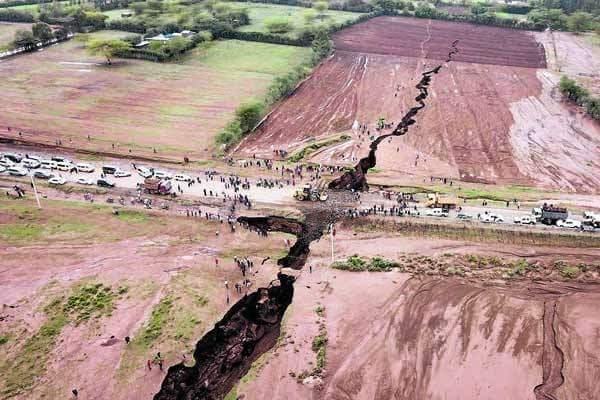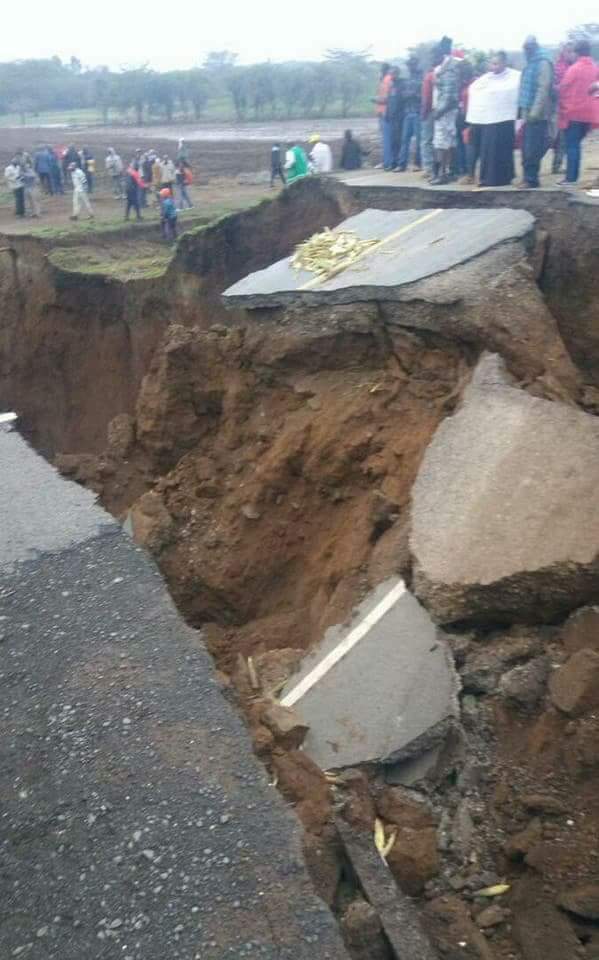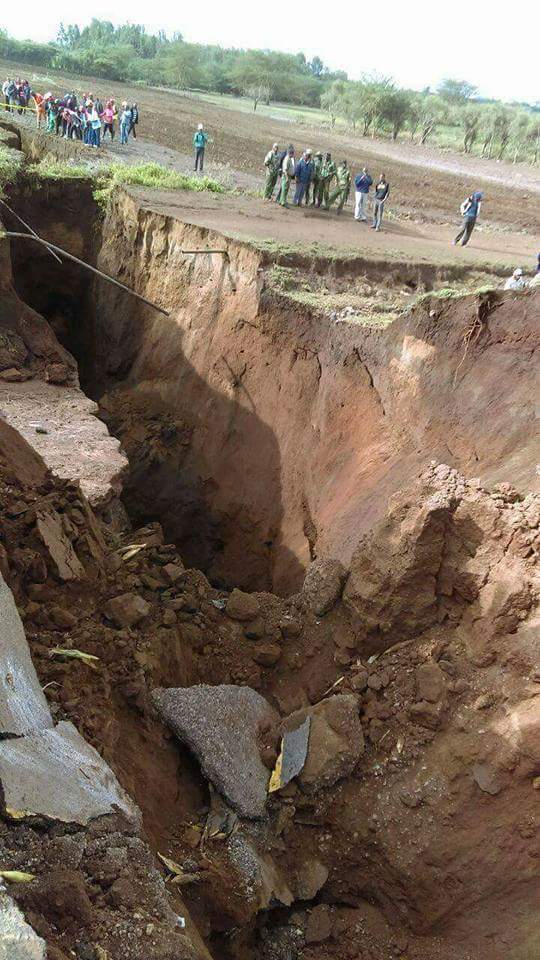East and Horn of Africa slowly splitting away from Africa – Geologists

The geological split will result in a new continent referred to as the Somali Plate within a period of 50 million years

By Fauxile Kibet
Kenya, Somalia, Ethiopia and Tanzania are slowly splitting away from Africa, forming a new continent referred to as the Somali Plate within a period of 50 million years, geologists have said.
The revelations came following massive earth movements that left deep fissures in Narok County, IN southern Kenya. The movements interrupted traffic along the Mai Mahiu – Narok highway after a deep tear – as deep as 50 meters and about 20 meters wide appeared at the middle of the road.
Geologists who visited the site said that the site was one of the hundreds of weak spots on the Great Rift Valley – which runs through African from the Horn of Africa to Mozambique.
According to Geologist David Adeded, geological activity is most active at the base of the valley, where a dormant volcanic mount Longonot lies. The recent activity happened at an area called Suswa, a few kilometers from the Mountain.
“Whereas the rift has remained tectonically inactive in the recent past, there could be movements deep within the Earth’s crust that have resulted in zones of weakness extending all the way to the surface,” geologist David Adede said.
Scientists said that the area has zones of weakness that forms fault lines which are filled with volcanic ash – most likely from the nearby Mt Longonot.

The recent heavy rains experienced in Kenya according to the scientists triggered the earth movement by washing away the ash – hence exposing the cracks.
Scientists have now advised that countries within the Horn of Africa should fast track geological studies so as to understand and map fault lines and avert a possible disaster.
Kenya’s ambitious standard gauge railway project, which started from the coastal town of Mombasa passes through the area and the recent activity has raised questions over the safety of the project.
Past geological activity saw Saudi Arabia being torn away from the African continent forming the Red Sea. The actively splitting African plate and the Arabian plate meet at what geologists call a triple junction, where the Red Sea meets the Gulf of Aden.
NEW MAJOR OCEAN
A new spreading centre according to the scientists slowly developing under Africa along the East African Rift Zone and East Africa may be the site of the Earth’s next major ocean.
Plate interactions in the region provide scientists an opportunity to study first-hand how the Atlantic may have begun to form about 200 million years ago.
Geologists believe that, if spreading continues, the three plates that meet at the edge of the present-day African continent will separate completely; allowing the Indian Ocean to flood the area and making the easternmost corner of Africa (the Horn of Africa) a large island.
The Erta Ale volcano complex situated in the Danakil Depression, North – East of Ethiopia is one of the areas scientists are closely studying as it represents the breaking up of the African continent.
Scientists explain that basaltic magmas push apart both plates and created a volcanic line of shield volcanoes between the salt lakes of Assale and Afdera.
Amongst these dormant volcanoes Erta Ale is the active one and world famous for its persistent lava lake that has been active during most of the past decades since it was first discovered in the 1960s.
In 2002, lava streamed into lake Kivu, one of Africa’s great lakes, which is situated at Goma in the Democratic republic of Congo (DRC).

Although the lake did not explode at the time, people living at the shore of the lake may not be so lucky if lava reaches the shore of the lake again.
Scientists attributed the explosion to a “limnic eruption,” when gases at the bottom of a lake, usually kept under by the weight of the water above it, are disturbed and rise to the surface.
Africa now should race against time to avert a possible volcanic disaster which could occur – if the activities that have been witnessed in the recent past is anything to go by.